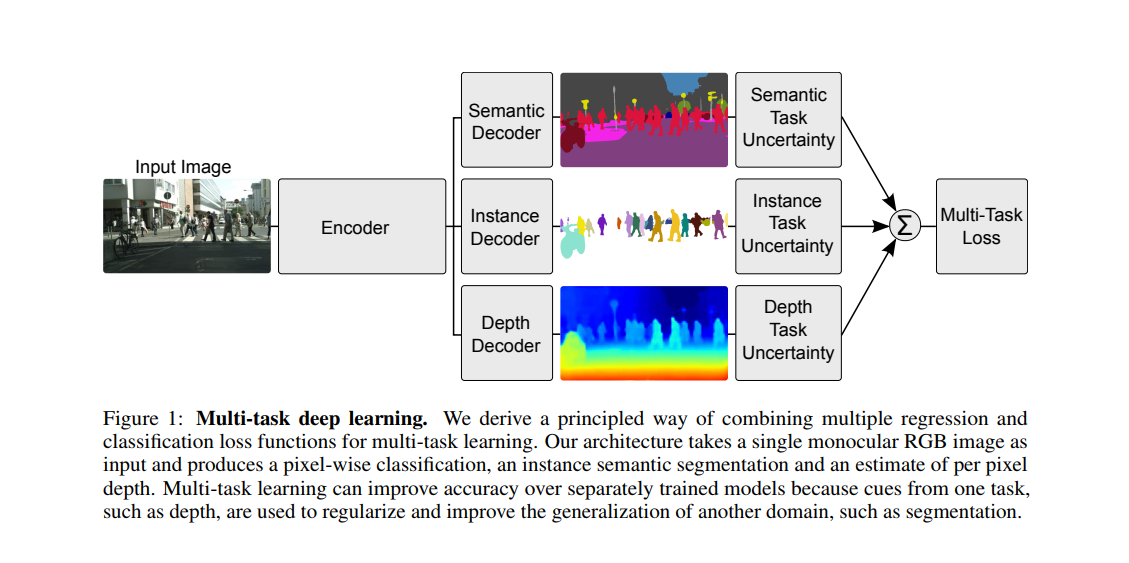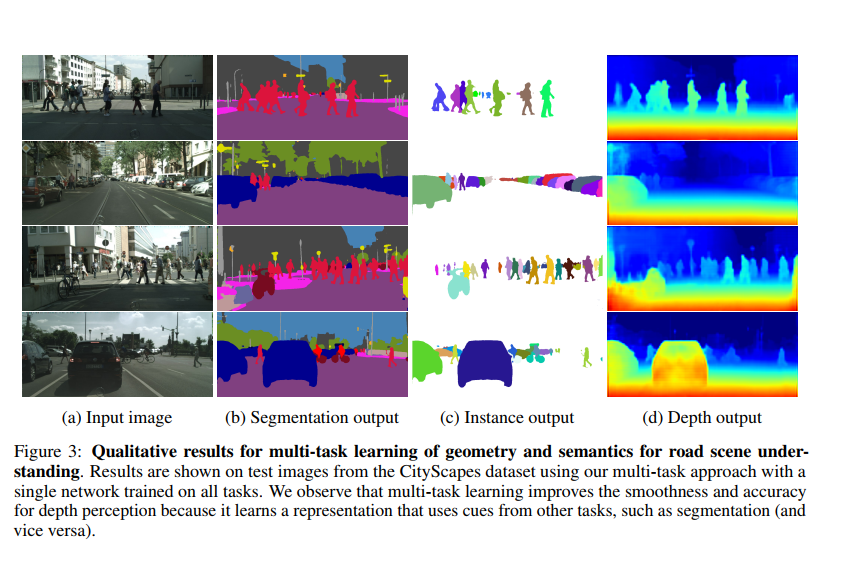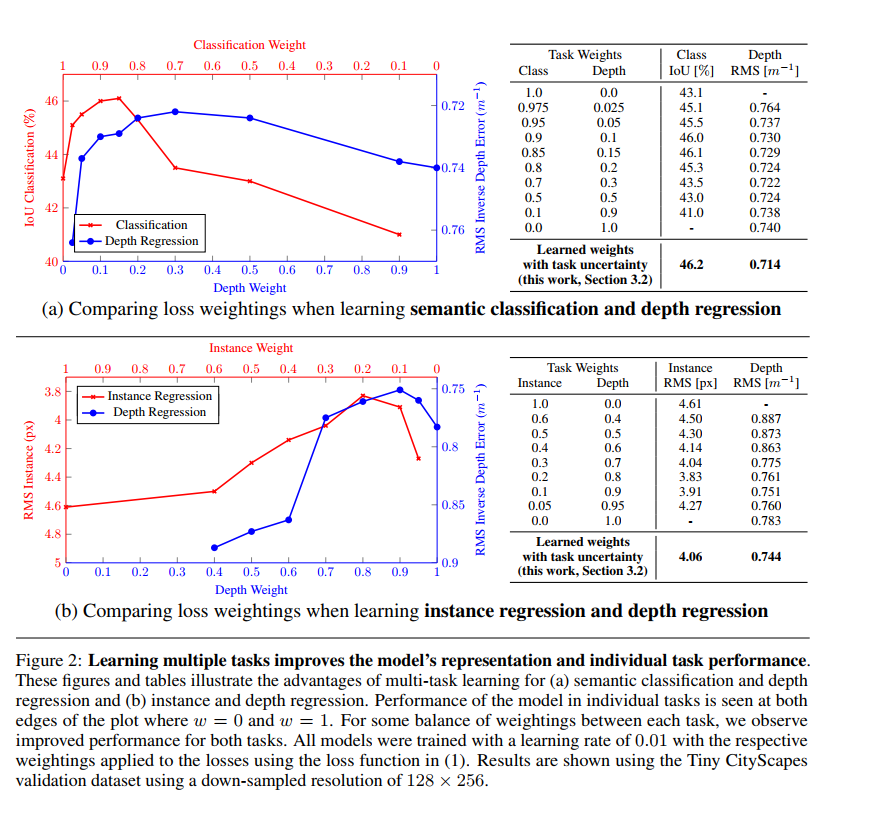![Multi-Task Learning Using Uncertainty to Weigh Losses for Scene Geometry and Semantics[arXiv May 17]](/blog/assets/img/ddsfdsdsafdsa.png)
Multi-Task Learning Using Uncertainty to Weigh Losses for Scene Geometry and Semantics[arXiv May 17]
2017, Dec 05
One Line Summary
- Deep learning applications benefit from multi-task learning with multiple regression and classification objectives, a principled approach to multi-task deep learning which weighs multiple loss functions is presented.
Motivation
- Performance of multi-task system is strongly dependent on the relative weighting between each task’s loss, tuning these weights by hand is a difficult and expensive process, making multi-task learning prohibitive in practice.
Detailed Summary
- Multi-task learning aims to improve learning efficiency, generalization and prediction accuracy by learning multiple objectives from a shared representation
- Prior multi-task learning tasks use a naive weighted sum of losses, but the performance is highly sensitive to the weights given to the losses
- This approach uses the learns the weights to the losses for the optimal predictions and efficiency across the tasks.
Novelty and Contributions
- A novel and principled multi-task loss to simultaneously learn various classification and regression losses of varying quantities and units using homoscedastic task uncertainty,
- A unified architecture for semantic segmentation, instance segmentation and depth regression,
- Demonstrating the importance of loss weighting in multi-task deep learning and how to obtain superior performance compared to equivalent separately trained models.
Network Details

- Network uses the same encoder for all three tasks .
- Decoder part is separate for each task
Results


Authors
Alex Kendall, Yarin Gal, Roberto Cipolla